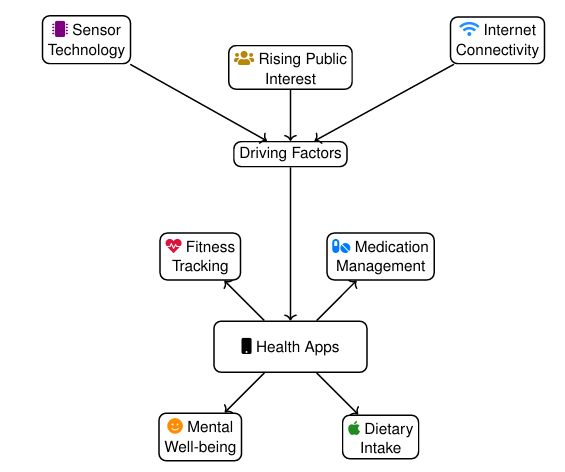Patient Engagement with Mobile Health Apps: An Empirical Investigation of Factors Influencing Long-term Adherence

Published 2021-07-20
Keywords
- Adherence factors,
- Digital health,
- Mobile health apps,
- Personalization,
- Self-management
- User engagement,
- User experience ...More
How to Cite
Abstract
Mobile health apps are increasingly used for self-management of physical activity, medication adherence, mental health, and diet intentions. However, long-term user adherence remains problematic. This article examines the most relevant factors accounting for adherence across four categories of health apps (fitness, medication tracking, mental health, and diet and nutrition) based on a survey of 411 adult users. Using the quantitative approach, the study acquires five broad categories—Demographic \& Socioeconomic Factors, Psychological \& Health Status, Benefits Sought & Goals, App Features \& User Experience, and Context \& Environment—that are aggregated in what collectively make up long-term engagement. The results conclude that support factors include plain design, personalized goal setting, high intrinsic motivation, social support, and data protection beliefs. Conversely, time shortage, app complexity, privacy issue, and outcome expectancy nonfulfillment are barriers to long-term use. In addition, external pressures and major lifestyle disruption lead to lower participation or complete dropout. These findings suggest that app developers need to make intuitive interfaces, dynamic personalization, and robust privacy controls the top features. Compliance can be promoted by healthcare providers through personalized app recommendation, active follow-up, and integration into patient care routines, thus enhancing patient compliance and health outcomes. In general, using strategies that are sensitive to users' individual contexts, motivations, and environmental constraints can significantly improve the chances of long-term use. Longitudinal designs and focused interventions will be required in future research to extrapolate these findings and investigate how specific subpopulations respond to specific app features and support systems. Digital health interventions can be tailored to sustain user interest and facilitate meaningful long-term behavior change by refining these approaches.